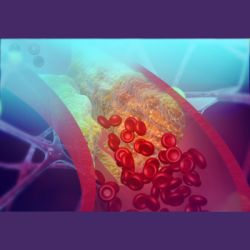The
Netherlands Healthcare Institute, Zorginstituut Nederland (ZIN), has agreed to reimburse Selective
Internal Radiation Therapy (SIRT) for patients with colorectal liver metastases
who have failed on or are intolerant to prior chemotherapy. The ZIN based its
decision on clinical evidence of the efficacy and safety of SIR-Spheres Y-90
resin microspheres for treating this patient group.
It was also announced that The Netherlands Comprehensive Cancer Organisation, Integraal Kankercentrum Nederland (IKNL), will manage a new patient registry to collect and analyse treatment data on the first 500 patients with colorectal liver metastases who receive SIRT under the new reimbursement programme.
SIR-Spheres Y-90 resin microspheres are a medical device developed by Sirtex used in an interventional radiology procedure known as SIRT or radioembolisation, which targets high doses of radiation directly to liver tumours. The treatment will be made available to patients in The Netherlands through ten specialist centres.
Colorectal cancer is the most frequently diagnosed cancer in The Netherlands, with 13,900 new patients annually; it is also the country's second most common cause of cancer mortality, accounting for approximately 5,200 deaths each year.[1] When colorectal cancer spreads (metastasizes) elsewhere in the body, it most often spreads to the liver. These liver metastases will eventually cause the death of the majority of patients.
"This announcement is very good news for the many patients in The Netherlands with liver metastases from colorectal cancer who have failed chemotherapy and biological treatments," said Professor Marnix Lam, Nuclear Medicine Physician at University Medical Center Utrecht.
Gerda Schapers, a survivor of advanced metastatic colorectal cancer and a board member of The Dutch Intestinal Cancer Foundation stated, "Patients from all over The Netherlands can now benefit from this innovative therapy, with which I was treated more than three years ago."
"We are pleased that SIR-Spheres will now be available to more patients at leading specialist centres across The Netherlands. This decision affirms the strong evidence of efficacy and safety for SIR-Spheres in this patient group," said Nigel Lange, Chief Executive Officer of Sirtex Medical Europe, whose parent company, Sirtex Medical Limited of Australia, developed and continues to study new uses of SIR-Spheres Y-90 resin microspheres in the treatment of liver tumours.
What is SIRT?
Selective Internal Radiation Therapy (SIRT) is a non-surgical procedure, in which an interventional radiologist uses a catheter directed through an incision in the patient's femoral artery to deliver a treatment comprising millions of radioactive microspheres (more than 30 million resin microspheres coated in radioactive yttrium-90 in the case of SIR-Spheres microspheres) directly into branches of the hepatic (liver) artery. The microspheres are carried by the blood flow through the arteries into the small vessels that nourish tumours in the liver, where they ultimately become trapped due to their size and deliver high doses of beta-radiation directly to the tumours. As internal radiation is delivered directly to tumours, patients can receive radiation doses many times greater than possible with external beam radiation.
Reference:
1) Ferlay J, Soerjomataram I, Ervik M et al. Globocan 2012. v1.0, Cancer Incidence and Mortality Worldwide: IARC CancerBase No. 11 [Internet]. Lyon, France: International Agency for Research on Cancer; 2013. Available from: http://globocan.iarc.fr, accessed on 16/March/2016.



























